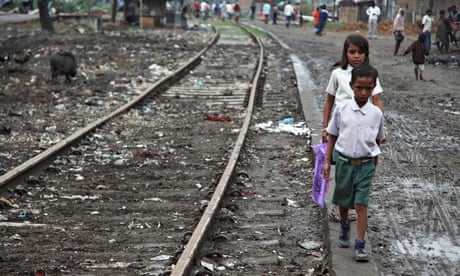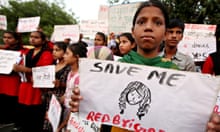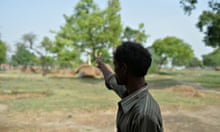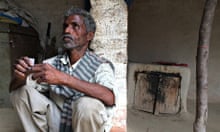Two teenage girls have been gang-raped and killed after doing what half a billion women and girls are forced to do every day – go outdoors to try to find somewhere discreet to go to the toilet.
A toilet, bathroom, powder room – whatever you want to call it – at home, at school, at work, in the shopping mall, is something many of us take for granted and cannot talk about without feeling embarrassed. But we must: because the lack of toilets is costing women their lives.
Today, 2.5 billion people live without access to a toilet, forcing women to walk to dark and dangerous places to find the privacy they need – those same dark and dangerous places where men wait to attack them.
So we must stop blushing when we talk about open defecation because it is not something to be embarrassed about: it is something to be angry about.
Those two cousins, just 14 and 16 years old, had left their homes in the Indian village of Katra, in Uttar Pradesh, because they had no toilet at home. They were never to return, found hanging from a tree after being brutally attacked.
A report in the Times of India in February this year quoted the police in another district of Uttar Pradesh as saying that 95% of cases of rape and molestation took place when women and girls had left their homes to "answer a call of nature".
But this is certainly not just an Indian problem. One in three people around the world lack access to basic sanitation, while 1 billion of those – that is, 15% of the global population – currently practise open defecation.
A WaterAid study in the slums of Lagos in Nigeria showed that a quarter of women who lacked access to sanitation had first- or second-hand experience of harassment, threats of violence or actual assault linked to their lack of a safe, private toilet in the last year. Amnesty International has released similar studies from Kenya and the Solomon Islands.
Being forced to defecate by rivers, in fields or in alleyways not only puts women and girls at greater risk of sexual violence and harassment; it is also a major public health risk.
The practice pollutes natural waterways and spreads diseases, notably diarrhoea, a major cause of death in children in the developing world. Every day, around 1,400 mothers will lose a child to this disease, brought about because of a lack of access to basic sanitation, clean water and hygiene services. Research estimates that just putting an end to open defecation worldwide would see this figure drop by over a third.
This is a problem that can be solved, and the first step is getting over our squeamishness. The deputy secretary-general of the United Nations, Jan Eliasson, called on the world last week to "break the diplomatic silence on open defecation".
The deputy secretary-general's words and the launch of his campaign come at a crucial time. Governments are now negotiating a new poverty reduction framework to replace the Millennium Development Goals.
Access to clean water and sanitation currently ranks as the fifth highest priority for people voting in the UN's global My World survey, in which millions of people around the world have taken part, joining the international debate around the new Sustainable Development Goals. In India, voters put it as their fourth highest priority for a better life.
WaterAid, Unicef and the World Health Organisation, along with hundreds of other organisations around the world, are calling for a new Sustainable Development Goal that would commit countries to ensuring that everyone everywhere has access to basic sanitation, clean drinking water and hygiene by the year 2030.
For these two teenage girls in India, a new goal for universal access to sanitation has come too late. But their case illustrates in the starkest terms why access to sanitation and water are fundamental human rights – and why a lack of these services is putting hundreds of millions of children, girls and women at risk each and every day.
Barbara Frost is chief executive of WaterAid; Winnie Byanyima is executive director of Oxfam International; Corinne Woods is director of the UN Millennium Campaign; and Nick Alipui is director of programmes at Unicef




